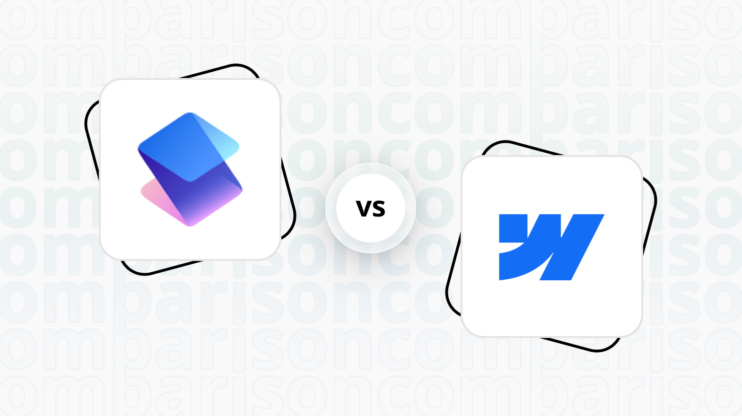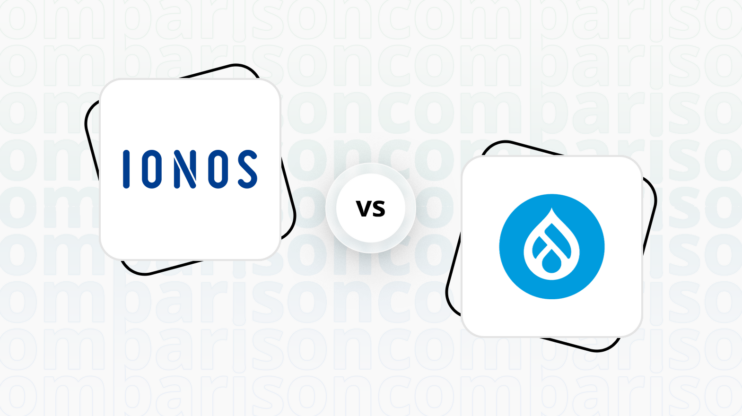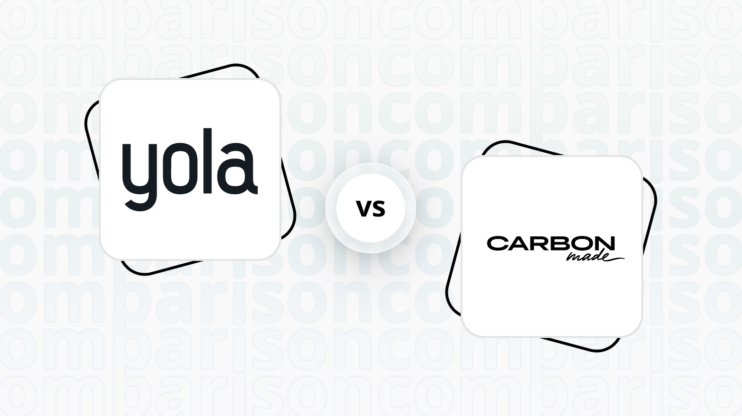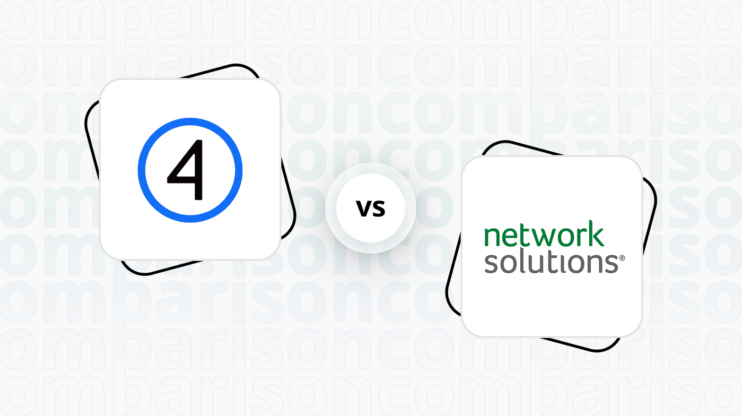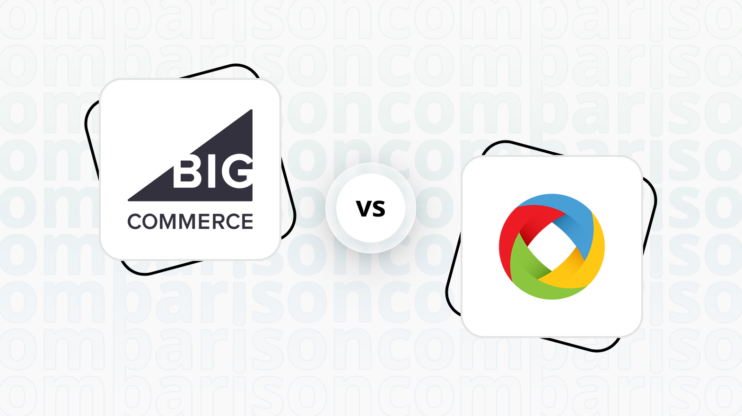Final verdict
Drupal and Jimdo both offer unique advantages, catering to different user needs and skill levels.
-
Drupal (Overall Grade: 6.4/10)
is a powerful open-source CMS known for its flexibility and extensibility. It is ideal for developers and advanced users who need to create complex websites with custom functionalities. Drupal offers a vast array of modules and themes, making it suitable for a variety of websites, from personal blogs to corporate and government sites. However, its steep learning curve and the need for technical expertise can be challenging for beginners. -
Jimdo (Overall Grade: 7.2/10)
stands out for its simplicity and ease of use, making it an excellent choice for beginners and those with basic computer skills. It is a user-friendly website builder platform designed for a wide range of users, from individuals creating personal blogs or portfolios to small businesses and ecommerce entrepreneurs. Jimdo simplifies the process of launching an online store with its built-in ecommerce features and user-friendly interface, though it may lack the advanced customization options available in Drupal.

|

|
|
|---|---|---|
|
Design functionalities & templates |
7.8 |
7.2 |
|
Ease of use |
5.4 |
8.0 |
|
Ecommerce |
7.5 |
7.0 |
|
Website Editors |
7.5 |
7.8 |
|
Product testing options |
7.1 |
6.4 |
|
Price |
5.7 |
7.5 |
|
Hosting quality |
0 |
6.7 |
|
Website speed optimization |
6.4 |
7.6 |
|
Plugins and integrations |
8.6 |
7.4 |
|
Marketing features |
8.0 |
7.2 |
|
Customer support |
6.7 |
6.8 |
|
Security |
8.3 |
8.3 |
|
AI capabilities |
7.5 |
6.0 |
|
User Management |
9.1 |
5.8 |
| Overall |
6.4 |
7.2 |
Best for ecommerce
 7.5
7.5
 7.0
7.0
Verdict
: Drupal is ideal for those needing extensive customization and flexibility, while Jimdo is perfect for users seeking simplicity and ease of use.
-
Drupal
: Known for its flexibility and extensibility, Drupal is a powerful choice for ecommerce, especially for developers who need to create complex, custom functionalities. With its Drupal Commerce module, it offers a comprehensive ecommerce solution, though it comes with a steep learning curve. When comparing Drupal vs Jimdo, Drupal stands out for its advanced customization options and robust ecommerce features. -
Jimdo
: Jimdo excels in providing a user-friendly interface that simplifies the process of setting up an online store. It is particularly suitable for individuals and small businesses with basic ecommerce needs. While it may not offer the same level of customization as Drupal, Jimdo’s ease of use makes it an attractive option for those with limited technical skills or time.
Best for informational & business websites
 7.5
7.5
 7.4
7.4
Verdict
: When it comes to Drupal vs Jimdo for informational business websites, Drupal slightly edges out Jimdo due to its flexibility and extensive customization options, although Jimdo offers a more user-friendly experience.
-
Drupal
: Drupal is a powerful open-source CMS known for its flexibility and extensibility, making it suitable for a wide range of websites, including informational business sites. It offers a vast array of templates and modules, allowing for extensive customization. However, its steep learning curve can be challenging for beginners, making it more suitable for users with some technical expertise. Drupal’s score for informational business websites is 7.5. -
Jimdo
: Jimdo is a user-friendly website builder that excels in simplicity and ease of use, making it ideal for beginners and those with limited technical skills. It offers a variety of templates and built-in optimization tools, making it easy to create and manage informational business websites. While it may not offer the same level of customization as Drupal, its straightforward interface and support options make it a strong contender. Jimdo’s score for informational business websites is 7.4.
Detailed comparison
Design functionalities & templates
Design FunctionalitiesRepresents how well each platform allows for creative design and customization of websites.Score Components:
- Template Variety (30%): Range and quality of design templates.
- Customization (30%): Flexibility and options for design alterations.
- User Interface (20%): Ease and intuitiveness of the design process.
- Responsiveness (10%): Adaptability to different devices and screen sizes.
- Innovation (10%): Unique design features and tools.
 7.8
7.8
 7.2
7.2
🏆
Winner: Drupal.
If you’re looking for a platform that offers more creative control, a wide array of design features, and a vast array of templates and designs, Drupal is the preferred choice.
Drupal, as a highly flexible and powerful content management system, offers a vast array of templates and designs to cater to virtually any website need. With thousands of themes available, users can choose from minimalist designs, industry-specific layouts, and highly customizable multipurpose themes. These templates are designed to be responsive, ensuring that websites look great on any device. Moreover, the Drupal community continuously contributes new designs and templates, expanding the options for users to keep their websites modern and engaging.
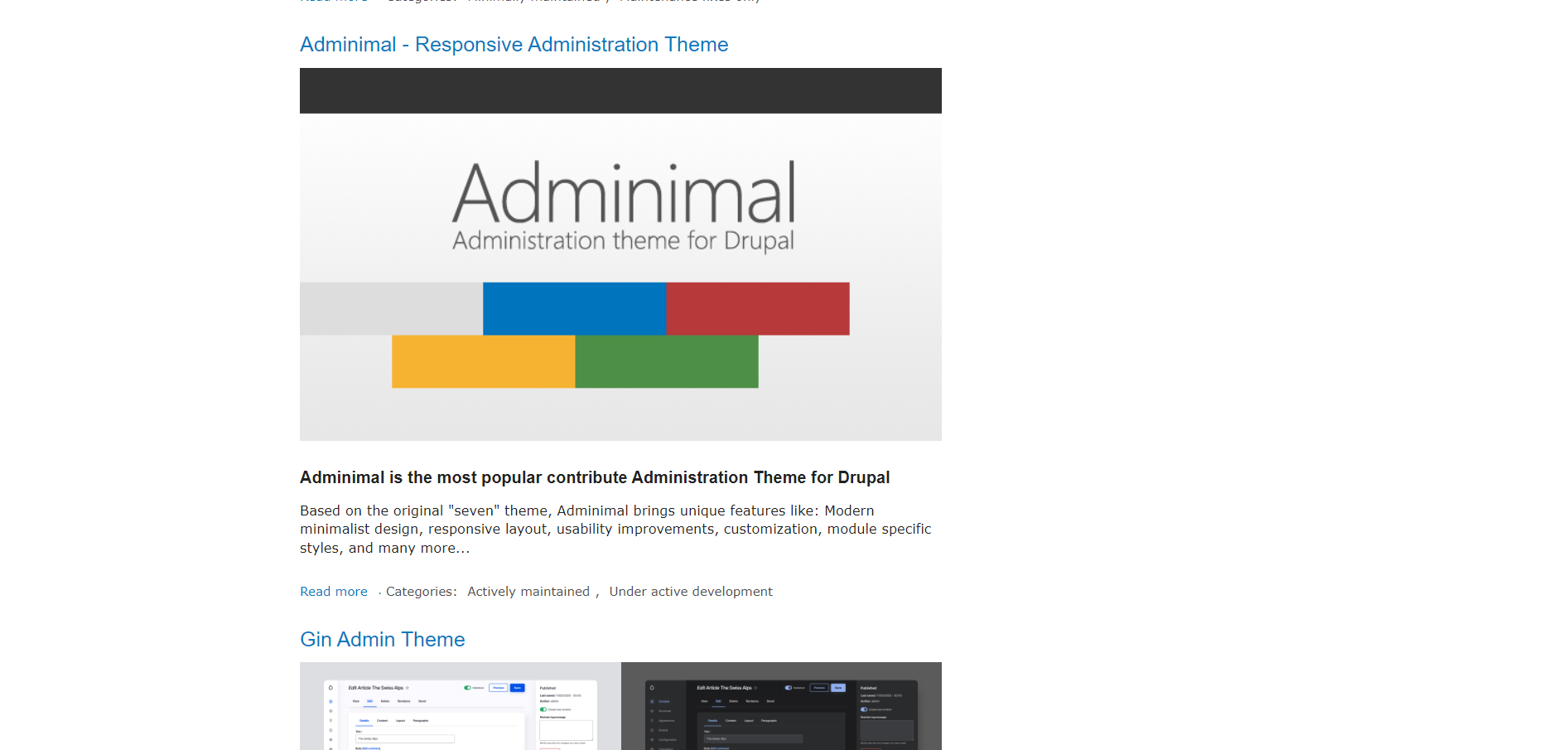
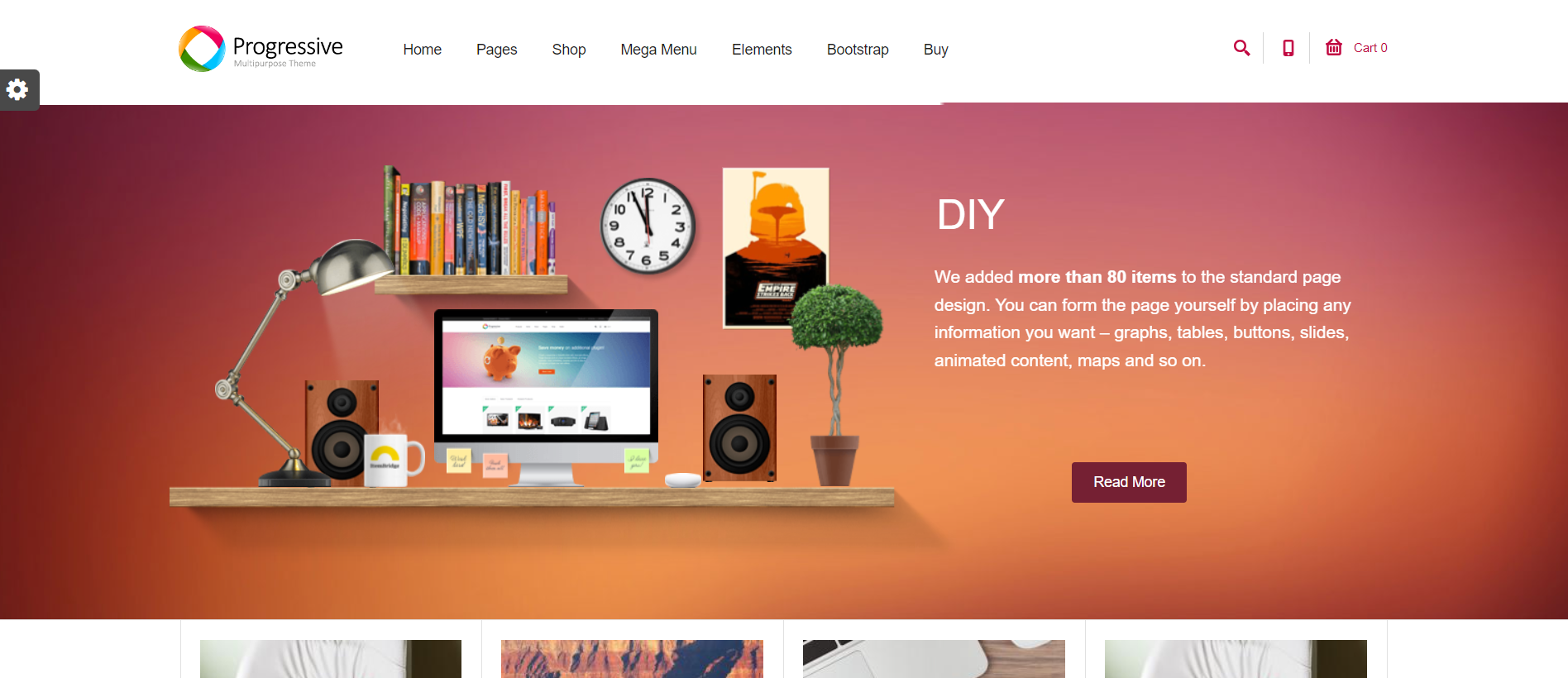
Compared to Drupal, Jimdo offers a diverse range of templates suitable for various industries and user preferences, with options to preview and select templates easily. The platform allows flexibility in changing templates for existing websites and also provides a “Blank Template” for custom designs, catering to both beginners and advanced users.


Get a head start on website creation with AI
Create a custom website tailored to your business needs 10X faster with 10Web AI Website Builder!
Ease of use
Ease of useReflects the platform’s overall user-friendliness.Score
Components:
- Learning curve (40%): Quickness and ease of getting started.
- Interface design (30%): Simplicity and intuitiveness of layout.
- User guidance (20%): Quality of tutorials and support.
- Flexibility (10%): Adaptability to various user skills.
 5.4
5.4
 8.0
8.0
🏆 Winner: Jimdo
. With an ease of use score of 8.0, Jimdo is praised for its simplicity and user-friendly interface, making it an excellent choice for beginners and those with basic computer skills. On the other hand, Drupal, scoring 5.4, is known for its flexibility and extensibility, but its steep learning curve can be challenging for beginners or those unfamiliar with web development principles.
Learning Resources
🏆 Winner: Drupal
. Despite its complexity, Drupal offers a wealth of learning resources, including extensive official documentation, a vibrant community forum, and a variety of online courses and tutorials. Jimdo also provides user-friendly learning resources and tools, but Drupal’s comprehensive resources make it more accessible for beginners and beneficial for advanced users looking to deepen their expertise.
For ecommerce
EcommerceMeasures the platform’s effectiveness in supporting online business activities.Score Components:
- Ecommerce themes and templates (20%): Variety and design of templates.
- Product management (25%): Ease of managing and organizing products.
- Payment options (25%): Variety and convenience of payment methods.
- Ecommerce features (20%): Features for managing an ecommerce store.
- Integration (10%): Compatibility with external e-commerce tools and services.
 7.5
7.5
 7.0
7.0
Drupal and Jimdo both offer ecommerce capabilities, but they cater to different user needs and skill levels. Drupal, with its Drupal Commerce module, provides a flexible and comprehensive ecommerce solution that can be seamlessly integrated into its CMS. However, it has a steep learning curve and may require extensive customization. On the other hand, Jimdo simplifies the process of launching an online store with its built-in ecommerce features and user-friendly interface.

|

|
|
|---|---|---|
|
Ecommerce themes and templates |
7.8 |
6.5 |
|
Product page customization |
8.3 |
6.8 |
|
Payment processing and commissions |
7.5 |
7.5 |
|
POS capabilities |
5.5 |
5.0 |
|
Payment gateways |
7.7 |
7.0 |
|
Product numbers |
7.0 |
6.0 |
|
Additional ecommerce features |
8.0 |
6.5 |
Drupal ecommerce features:
- Shopping Cart and Checkout Process
- Payment Gateway Integration
- Order Management and Invoicing
- Tax Calculation and VAT Support
- Shipping and Fulfillment
- Promotions and Discounts
- Reporting and Analytics
- Security and Compliance
Jimdo ecommerce features:
- Product details and variations
- Inventory tracking
- No transaction fees
- Discount codes and promotions
- Email marketing
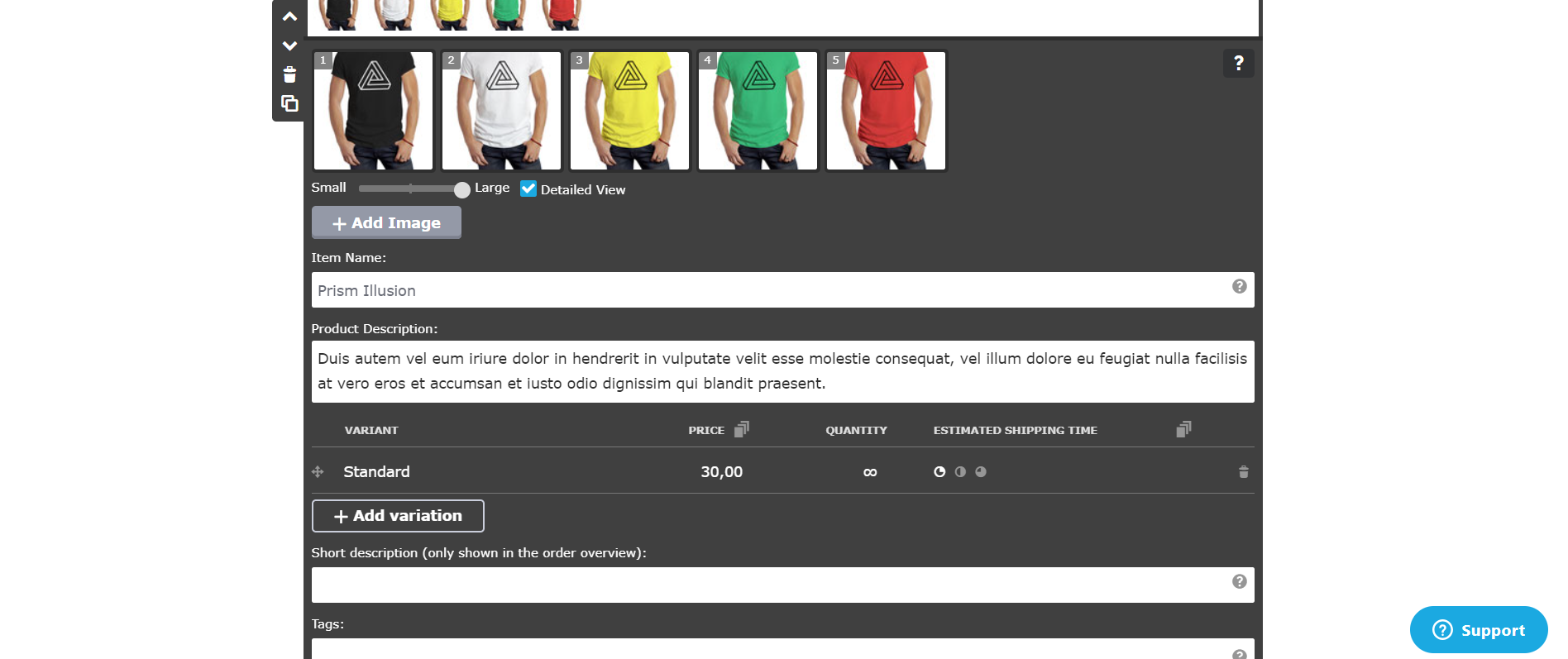
Ecommerce themes & templates
Drupal offers a wide array of ecommerce themes designed to cater to different types of online stores. These themes are built with responsiveness in mind, ensuring that stores function seamlessly across various devices. On the other hand, Jimdo’s ecommerce templates offer a diverse range of pre-designed themes, ensuring a mobile-friendly and smooth shopping experience. The drag-and-drop interface allows for easy customization of colors, fonts, and layouts.
Product page customization
Drupal offers extensive customization possibilities for product pages through its modular architecture, allowing for detailed content types, flexible displays with Views, and theme customizations. The Drupal Commerce module enriches ecommerce functionalities, enabling tailored product management, checkout flows, and payment systems. On the other hand, customizing a product page on Jimdo involves using its user-friendly interface to personalize various elements. You can edit text, add images, adjust layouts, and modify design elements like colors and fonts to showcase your products effectively.
Payment processing
Drupal supports a wide range of payment gateways through third-party modules, including popular ones like PayPal, Stripe, and Authorize.Net. While Drupal itself does not charge any commissions or transaction fees, the individual payment gateways integrated with it do have their own fee structures. On the other hand, Jimdo facilitates payment processing through various popular gateways like PayPal, Stripe, Mollie, and more, depending on your location and plan. While Jimdo doesn’t impose transaction fees, individual payment gateways may have their own charges.
Website Editors
Website EditorsEvaluates the platforms’ website building and editing capabilities.Score Components:
- Customization tools (40%): Range and power of editing features.
- Editor usability (30%): User experience within the editor.
- Design flexibility (20%): Freedom in layout and design changes.
- Update and maintenance ease (10%): Simplicity of updating and maintaining the site.
 7.5
7.5
 7.8
7.8
🏆
Winner: Jimdo
. Jimdo, with a score of 7.8, offers a user-friendly editor designed to accommodate both novice and experienced users. It features two main modes: Jimdo Dolphin, an AI-driven tool ideal for beginners, and Jimdo Creator, which provides a more traditional website building experience with greater customization options.
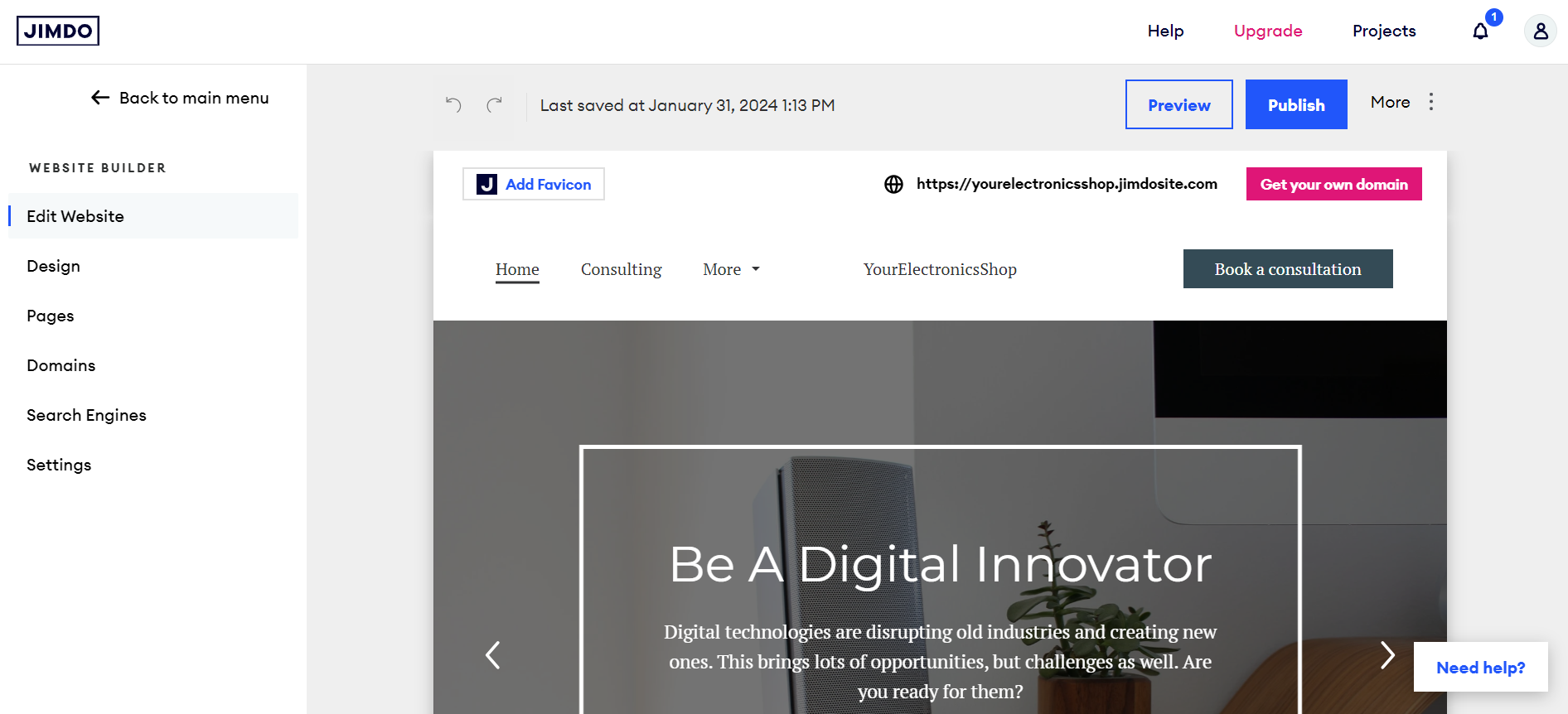
Drupal’s editor, scoring 7.5, offers a wide range of features tailored for content creation and management. It supports rich text editing, enabling users to format text, insert links, images, and media, as well as create tables and lists with ease. However, it can pose challenges for beginners due to its wide range of features and customization options.
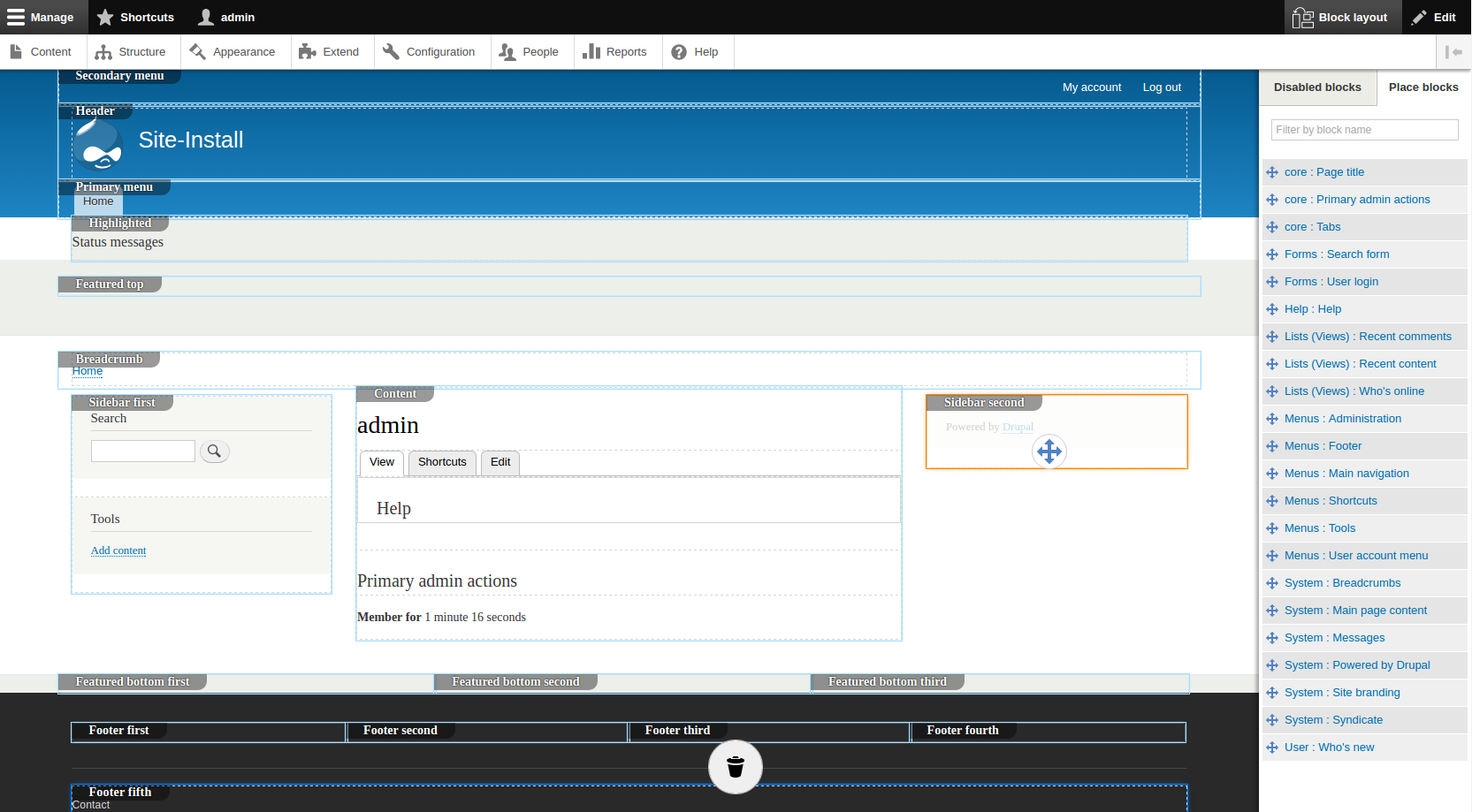
Mobile editor/app
 0
0
 8.0
8.0
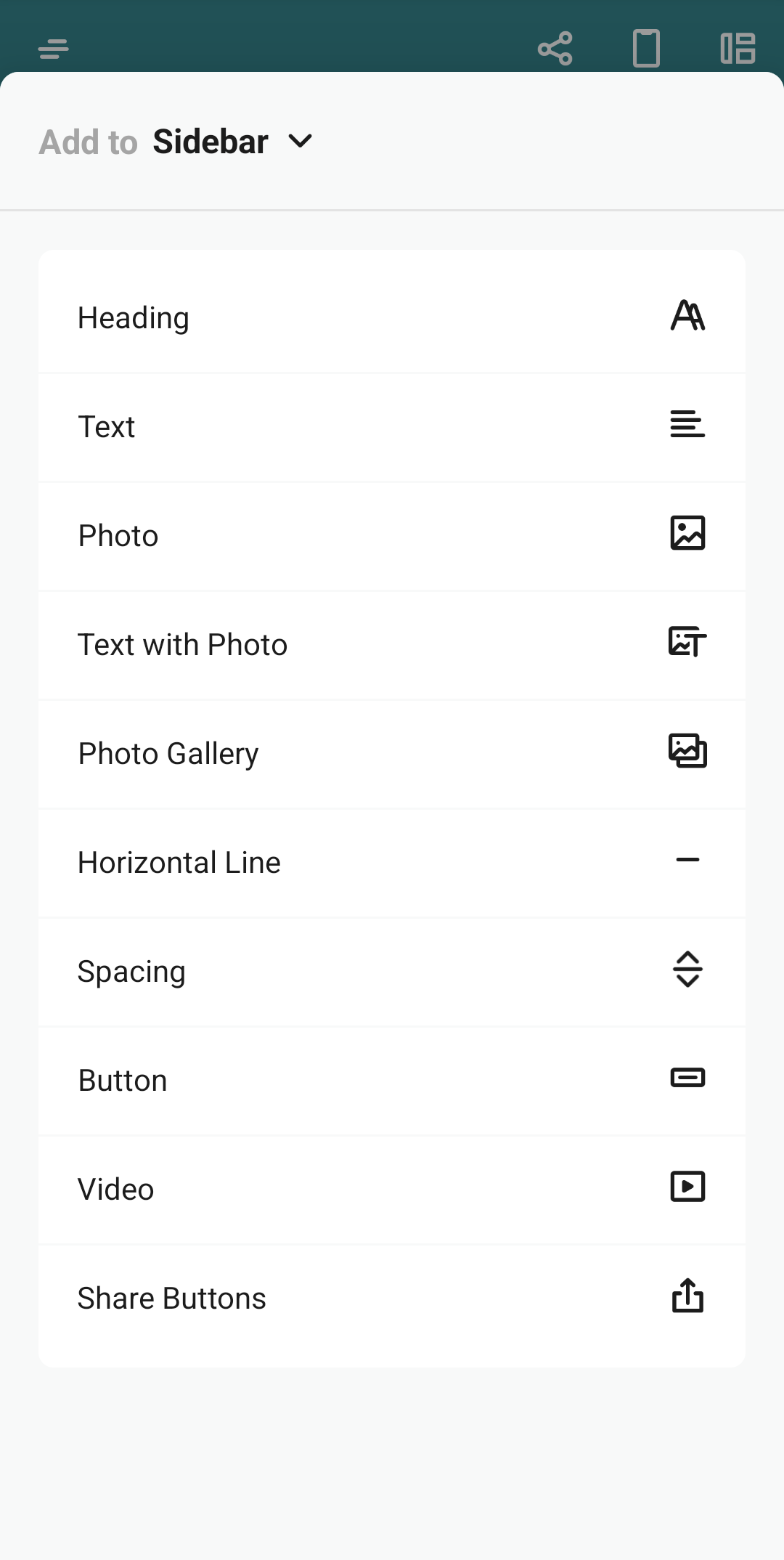
🏆
Winner: Jimdo
. When it comes to mobile editing, Jimdo clearly outshines Drupal. Drupal does not offer a dedicated mobile editor app, which can limit the flexibility and convenience for users who prefer to manage their websites on the go.
On the other hand, Jimdo offers a mobile editor app that allows users to create and manage their websites directly from their smartphones or tablets. This app provides a convenient way to edit and update your site on the go, including adding or modifying content, adjusting design elements, and managing your online store. This makes Jimdo a more versatile and user-friendly option for mobile website management.
Product testing options
Product Testing OptionsAssesses the options for trying out platform features before commitment.Score Components:
- Trial quality (40%): Extent and usefulness of the trial or free version.
- Feature accessibility (30%): How many features are available to test.
- Trial duration (20%): Length of the trial period.
- Ease of transition (10%): Smoothness of moving from trial to paid plans.
 7.1
7.1
 6.4
6.4
Overall Result
:
Drupal Wins
. Drupal scores 7.1 in product testing options, slightly higher than Jimdo’s 6.4. Drupal, being an open-source CMS, is free to use and doesn’t offer a trial version or premium features testing. On the other hand, Jimdo doesn’t provide a trial version but offers a 14-day money-back guarantee for all paid plans, allowing users to test premium features.

|

|
|
|---|---|---|
|
Free Plan |
Yes (open-source software) |
Yes |
|
Trial Duration |
No | No (14-day money-back guarantee) |
|
Testing Premium Features |
No |
Yes, with money-back guarantee |
Price
PriceLooks at the cost-effectiveness and value for money of each platform.Score Components:
- Plan value (40%): What each pricing tier offers.
- Transparency and clarity (30%): Clearness of pricing structures.
- Flexibility of plans (20%): Range of options to suit different budgets.
- Hidden costs (10%): Additional expenses not included in the plan.
 5.7
5.7
 7.5
7.5
Drupal is a free open-source CMS, but users need to consider additional costs for domain, hosting, and website builder subscriptions. Jimdo, on the other hand, offers a range of price plans with discounts for annual subscriptions. Neither Drupal nor Jimdo offer enterprise plans.

|

|
|
|---|---|---|
|
Free |
No offering at this amount. |
Play ($0/month): Basic, entry-level plan offering limited features, ideal for testing Jimdo’s capabilities. Includes 500MB storage and up to 5 website pages. Limited ecommerce functionality. |
|
$0-$10 |
No offering at this amount. |
Start ($9/month): Aimed at small projects or businesses just starting out. Provides 5GB of storage and up to 10 website pages, along with SEO tools for online visibility. Not directly focused on ecommerce. Value for price: 6.0 |
|
$10-$15 |
No offering at this amount. |
Grow ($15/month): Targets growing businesses needing more space and features. Offers more flexibility but still lacks dedicated ecommerce capabilities compared to the Business plan. Provides 20GB bandwidth with up to 50 website pages. Value for price: 7.0 Basic ($15/month): Up to five forwarding email addresses, up to 10 website pages, convenient payment methods. Value for price: 6.5 |
|
$15-$20 |
No offering at this amount. |
Business ($19/month): Designed for small to medium-sized online stores, offering ecommerce features without transaction fees. Includes selling on Facebook and Instagram, and various payment options. And up to 50 website pages. Value for price: 8.0 |
|
$30+ |
No offering at this amount. |
VIP ($39/month): Provides comprehensive features for large or expanding online stores, including unlimited storage and priority support and unlimited website pages. Includes professional design review and no transaction fees. Value for Price: 9.0 Unlimited ($39/month): Offers unlimited bandwidth and storage, up to 20 forwarding email addresses and unlimited website pages. Includes priority support and professional design reviews. Value for Price: 9.5 |
location. As a result in rare cases the prices displayed here can differ from the ones you see on their
websites.
Hosting quality
Hosting
qualityExamines the reliability and performance of the hosting solutions.Score Components:
- Uptime (40%): Consistency and reliability of website availability.
- Speed (30%): Loading times and performance.
- Bandwidth and storage (20%): Sufficiency of resources provided.
- Data centers (10%): Quality and distribution of hosting infrastructure.
 0
0
 6.7
6.7
🏆
Winner: Jimdo
Jimdo offers hosting included in all of their plans, with varying storage and bandwidth limits based on the plan chosen. This gives Jimdo a hosting quality score of 6.7. On the other hand, Drupal, being an open-source CMS, does not provide hosting services directly, hence its hosting quality score is 0. The type of hosting, uptime, and data centers for Drupal depend on the hosting provider chosen by the user, while Jimdo offers shared, cloud, and managed hosting with an uptime of 99.5%.

|

|
|
|---|---|---|
|
Do they offer hosting? |
No |
Yes |
|
Data Centers: |
Depends on hosting provider |
Not publicly disclosed |
|
Type of hosting: |
Depends on hosting provider |
Shared, Cloud, Managed |
|
Uptime: |
Depends on hosting provider |
99.5% |
|
Uptime Guarantee: |
Depends on hosting provider |
No |
Website Speed Optimization
Website Speed OptimizationEvaluates optimization of website loading timesScore Components:
- PageSpeed Score (30%): Google’s score indicating performance optimization.
- Loading Time (30%): The average time until a website is fully interactive.
- Mobile Optimization (15%): Optimization effectiveness for mobile devices.
- Resource Optimization (15%): Optimizing images, scripts, and other heavy resources.
- CDN Usage (10%): Use of CDN to enhance speed across geolocations.
 6.4
6.4
 7.6
7.6
🏆 Winner: Jimdo
Both Drupal and Jimdo prioritize website performance and page speed, but Jimdo has a higher Website Speed Optimization score.

|

|
|
|---|---|---|
|
Focus |
User-guided optimization |
Content Optimization, CDN, Image optimization, Caching, Mobile Responsive design |
|
Performance Tools |
User-guided optimization |
Built-in optimization tools |
|
Key Strategies |
User-guided optimization |
Content Optimization, CDN, Image optimization, Caching, Mobile Responsive design |
|
Load Times |
Varies depending on optimization and website complexity |
Varies widely, dependent on optimization |
|
Page Speed Scores Range |
Varies depending on optimization and website complexity |
Varies; influenced by plugins, images |
|
Core Web Vitals Improvement |
Depends on users |
Optimizing LCP, Enhancing FID, Improving CLS |
Drupal, an open-source CMS, allows users to optimize almost all aspects of their website. However, the load times and PageSpeed scores vary depending on the level of optimization and website complexity. The improvement of Core Web Vitals also depends on the users.
On the other hand, Jimdo, a user-friendly website builder platform, offers built-in optimization tools. It focuses on content optimization, CDN, image optimization, caching, and mobile responsive design. The load times and PageSpeed scores vary widely, influenced by plugins and images. Jimdo also focuses on optimizing LCP, enhancing FID, and improving CLS for Core Web Vitals improvement.
Get a head start on website creation with AI
Create a custom website tailored to your business needs 10X faster with 10Web AI Website Builder!
Plugins and integrations
Plugins and integrationsMeasures the range and effectiveness of additional plugins and integrations.Score Components:
- Variety of options (40%): Range of available add-ons.
- Integration smoothness (30%): Ease of integrating plugins into the site.
- Quality of plugins (20%): Functionality and reliability of the options.
- Custom integration capabilities (10%): Support for custom or third-party integrations.
 8.6
8.6
 7.4
7.4
🏆 Winner: Drupal.
With a score of 8.6, Drupal leads the way with its extensive range of over 51,000 modules, which are predominantly free and open source. These modules extend the platform’s capabilities beyond its core features, enabling functionalities like advanced SEO tools, e-commerce solutions, and custom content types and fields. Key integrations like Commerce for online stores, Views for content display management, and Google Analytics for web traffic analysis exemplify Drupal’s adaptability.
Jimdo, with a score of 7.4, offers a range of plugins and extensions, with POWr and Elfsight being major providers. These tools enhance website functionality and cater to diverse business and marketing needs. However, it does not have a dedicated marketplace for integrations and plugins similar to some other website builders.
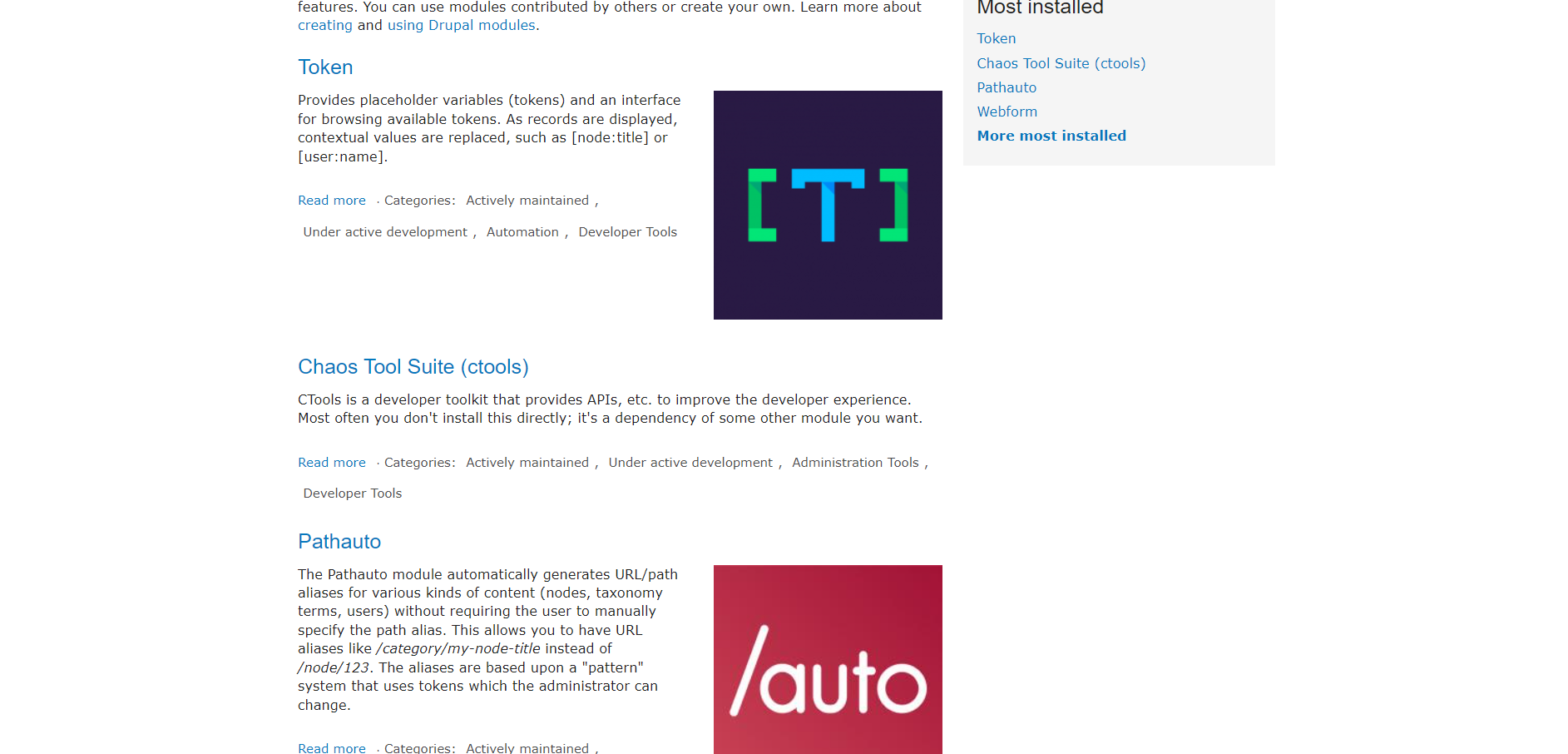
Marketing Features
Design FunctionalitiesRepresents how well each platform allows for creative design and customization of websites.Score Components:
- Template Variety (30%): Range and quality of design templates.
- Customization (30%): Flexibility and options for design alterations.
- User Interface (20%): Ease and intuitiveness of the design process.
- Responsiveness (10%): Adaptability to different devices and screen sizes.
- Innovation (10%): Unique design features and tools.
 8.0
8.0
 7.2
7.2
🏆
Overall Winner: Drupal
. Drupal stands out for its flexibility and extensibility, enabling developers to create complex websites with custom functionalities. Jimdo is strong in simplicity and ease of use, especially beneficial for those with basic computer skills or limited time.

|

|
|
|---|---|---|
|
SEO Tools |
Yes, with SEO modules such as Yoast SEO |
Yes |
|
Email Marketing |
Yes, but with third-party extensions, such as MailChimp |
Yes |
|
Blogging |
Yes |
Yes |
|
Social Media Integration |
Yes |
Integration features for various social media platforms |
|
Analytics and Reporting |
Yes, basic built-in features, and Google Analytics integrations through modules |
Integrated analytics for monitoring website traffic |
|
Ads and Promotions |
Yes, but with third-party extensions |
Tools and features for promotions, but detailed ad management may require external services |
Customer Support
Customer supportEvaluates the quality and availability of support options.Score Components:
- Response time (40%): Speed of support responses.
- Support quality (30%): Effectiveness and helpfulness of the support.
- Availability (20%): Range of support channels (phone, chat, email).
- Resource richness (10%): Quality of self-help and educational materials.
 6.7
6.7
 6.8
6.8
🏆 Winner: Jimdo
. In the Drupal vs Jimdo comparison, Jimdo slightly edges out Drupal in customer support with a score of 6.8 compared to Drupal’s 6.7. Jimdo offers a variety of support channels, including email support, a call center, a comprehensive knowledge base, and social media support. Although it lacks live chat support, Jimdo’s multiple support options ensure users can find help through various means.
Drupal, on the other hand, provides a robust community support system through forums and documentation on Drupal.org, along with professional 24/7 support services via providers like Drupal Connect. While Drupal’s support is extensive, it relies heavily on community-driven assistance, which may not be as immediate or personalized as Jimdo’s support options.
Security
SecurityLooks at the platforms’ security measures and data protection.Score Components:
- Data protection (40%): Safeguards for user and customer data.
- SSL and encryption (30%): Implementation of secure connections.
- Compliance (20%): Adherence to industry security standards.
- Regular updates (10%): Frequency of security updates and patches.
 8.3
8.3
 8.3
8.3
Draw: Drupal and Jimdo
. Both Drupal and Jimdo prioritize security and have the same security score of 8.3. Drupal, an open-source CMS, offers robust configuration options for enhanced protection and a proactive security approach with a dedicated security team. It includes built-in mechanisms for preventing common web vulnerabilities and supports advanced security features like two-factor authentication.
Jimdo, on the other hand, employs various protective measures such as a strong firewall, DDoS protection, and encryption for all traffic. It ensures GDPR compliance and maintains a dedicated team for legal and information security. These comprehensive security measures create a safe environment for Jimdo users and their websites.
AI Capabilities
AI capabilitiesMeasures the effectiveness of AI-driven features and tools.Score Components:
- Automation efficiency (40%): Impact of AI on streamlining processes.
- Personalization (30%): AI-driven customization for users or customers.
- AI-Assisted design (20%): Role of AI in website design and functionality.
- Data analysis (10%): Use of AI in interpreting user data and analytics.
 7.5
7.5
 6.0
6.0

|

|
|
|---|---|---|
|
AI Builder |
|
Jimdo’s AI builder offers mobile-friendly designs, access to copyright-free images, ecommerce capabilities, a legal text generator, social media integrations, personalized domains, and custom logo creation |
|
Ecommerce Features |
AI-enhanced chatbots, content creation, marketing automation, and cognitive services |
Basic AI-powered design suggestions for store layouts and image recommendations |
|
Content Generation |
AI Connect module for content generation, SEO optimization, and multilingual support |
|
|
Additional AI Features |
AI-based search enhancements, content personalization, automated content moderation, language translation, content localization, and accessibility improvements |
Basic AI capabilities focused on website creation |
🏆 Winner: Drupal
. Despite not having a built-in AI builder, Drupal’s AI capabilities are more advanced and versatile, enhancing various aspects of website creation and management. With a score of 7.5, Drupal’s AI integrations offer a range of advanced features, including AI-based search enhancements, content personalization, automated content moderation, language translation, content localization, and accessibility improvements.
Jimdo, with a score of 6.0, offers a basic AI builder that simplifies the website creation process. However, its AI capabilities are limited and mostly focused on website creation.

User Management
User ManagementAssesses the platforms’ capabilities in managing user roles, permissions, and accessibility.Score Components:
- Role Customization (40%): Flexibility in creating and defining user roles and
permissions. - Ease of Management (30%): User interface and tools for managing users.
- Access Control (20%): Effectiveness of access control measures for different user
levels. - Scalability (10%): Ability to manage a growing number of users efficiently.
 9.1
9.1
 5.8
5.8
🏆 Winner: Drupal
. Drupal’s flexible permission and role system allows for an unlimited number of users to manage and edit a website, only constrained by server capacity and practical management considerations. Administrators can create various roles, such as “Editor” or “Administrator”, each with customized permissions. There’s no inherent limit in Drupal on the number of users with administrative or editing capabilities, enabling extensive collaboration and content management possibilities.
On the other hand, Jimdo’s Free, Start, and Basic Shop Plans allow website management by a single owner. The Grow Shop Plan permits two editors, including the account owner and one collaborator. The Business Plan extends collaboration to five editors, consisting of the account owner and four collaborators. The Unlimited Plan provides unlimited editors, fostering a collaborative team environment. The VIP Plan, designed for online stores, does not specify a limit on editors for websites.
Drupal User Roles and Access Levels:
| Role | Description | Access Highlights |
|---|---|---|
| Editor | Users responsible for content creation, editing, and publishing. | Can create, edit, delete, and publish content; can also manage comments. |
| Moderator | Users focused on site moderation, including comment and user management. | Can approve or delete comments, block users, and manage reported content. |
| Administrator | Users with full access to all administrative features of the site. | Can change site configuration, manage all content, users, permissions, and install modules/themes. |
Unfortunately, Jimdo does not provide a detailed breakdown of user roles and access levels.
Additional Features

|

|
|
|---|---|---|
|
SSL Certificate |
|
|
|
Custom Domain |
|
|
|
Free Custom Domain Included |
|
|
|
International Domains |
|
|
|
Mobile Responsive |
|
|
|
Page Speed |
|
|
|
Website Builder Mobile App |
|
|
|
Convert a Website To An App |
|
|
|
Website Analytics |
|
|
|
Multilingual Sites |
|
|
|
Multiple Users |
|
|
User Feedback
Users appreciate Drupal for its ease of use, security, and flexibility as an open-source CMS, highlighting its ability to scale and support a variety of websites and applications with modern technology tools. The community and documentation are frequently mentioned positives, providing ample support and resources. However, criticisms include a relative lack of plugins and themes compared to competitors like WordPress, the learning curve for customization without coding, and some challenges with installation and updates. The platform is praised for its robust content management capabilities, enabling users to manage content and user access efficiently. Overall, feedback underscores Drupal’s strength in creating secure, customizable, and scalable web solutions, despite some desires for more intuitive UI and easier setup.
Jimdo, a website builder platform, receives mixed reviews from users. Positive feedback highlights its ease of use, no-code editor, and quick website development for basic sites. However, criticisms include outdated design, limited templates, and concerns about pricing transparency. Some users appreciate it for simple projects, while others find it lacking for more complex websites. Common issues include restricted SEO in the free tier, support limitations, and late responses. The overall impression suggests Jimdo may suit beginners but could be less ideal for those seeking advanced features or modern designs.
The making of this blog
We followed a clear, step-by-step process to write and research this article.
FAQ
What are the main differences between Drupal and Jimdo?
Which platform is better for ecommerce, Drupal or Jimdo?
Can I build an informational or business website with Drupal or Jimdo?
How do Drupal and Jimdo compare in terms of design functionalities and templates?
Which platform is easier to use for beginners?
How do the website editors of Drupal and Jimdo compare?
What are the hosting and website speed optimization differences between Drupal and Jimdo?
Which platform offers better plugins and integrations?
How do Drupal and Jimdo handle security?
Which platform has better AI capabilities?










